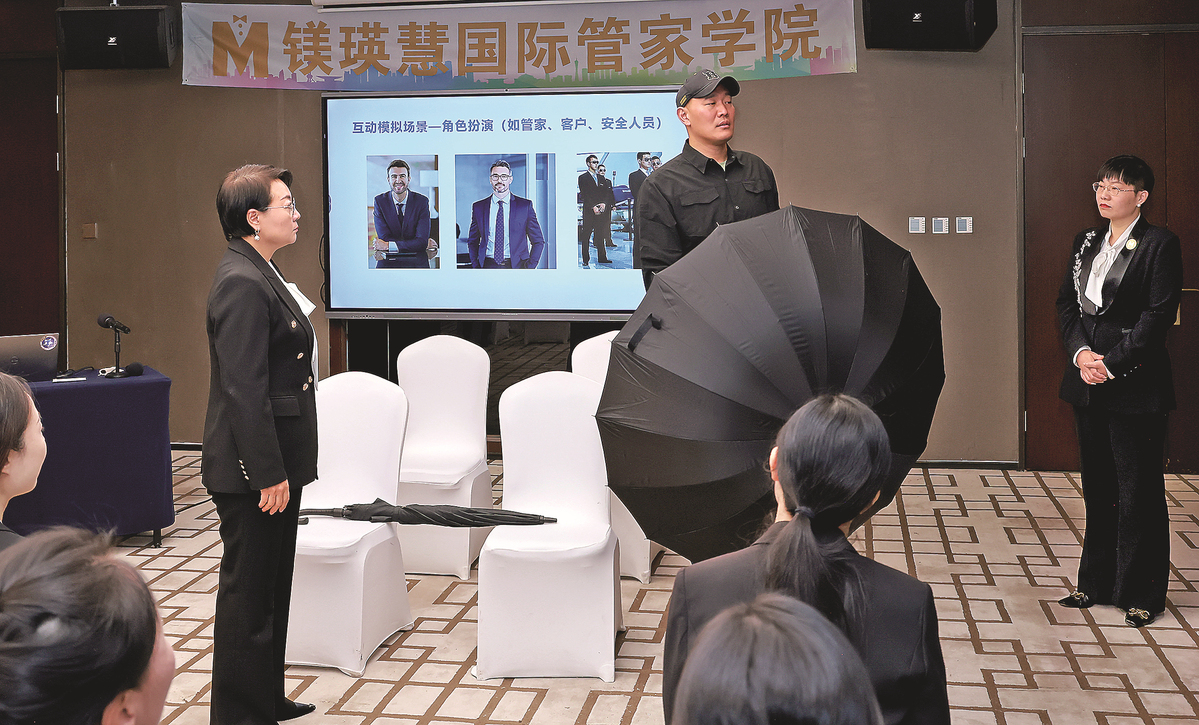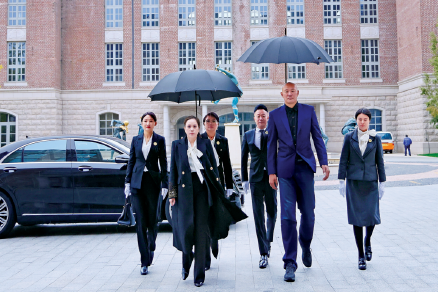Butler business thriving for well-to-do families
Beijing-based training firm says 70% of candidates are female


Founded in 2013, Meiyinghui said butler services have become increasingly common in China since 2015. The company currently manages about 1,000 butlers, and private butlers usually need to go through a training session that lasts about three to five months before starting work.
The COVID-19 pandemic didn't have an impact on demand for private butlers, and the supply has been falling short of demand over the past two to three years, Zhang said.
Zeng Jingjing has been a trainer for private butlers for two years. She studied in Melbourne and majored in business English, having worked for many years in the training sector.
"This is a sunrise sector. Private butlers usually work long term for their employers. They tend to work for at least two to three years for the same family," Zeng said.
Meanwhile, the market size of China's domestic service industry has exceeded 1 trillion yuan, with over 30 million employees, but the shortage of high-quality domestic service personnel is particularly prominent, said the National Development and Reform Commission during a recent news conference.
It is estimated that there is a shortage of over 20 million domestic workers in China. The demand for household services is no longer limited to daily chores, as online shopping and food deliveries have made it increasingly convenient for consumers, and they have indicated demand for higher-level specialized services.
For instance, demand for pet care, medical services, cultural life planning services, and other responsibilities has significantly increased, industry reports found.
So far, colleges such as Jilin Agricultural University and Hebei Normal University have established majors in home economics, while highly educated individuals who choose to major in home economics do not necessarily need to become household service personnel.
The demand for positions such as home economics managers, community service managers and project managers accounts for nearly half of the market demand, while home economics lecturers and professional teachers at vocational colleges account for 25 percent of the market demand, according to the Henan Home Service Association.
In another development, the Ministry of Human Resources and Social Security included some 20 new occupations on the national occupational classification list in late July, and those jobs included livestreaming anchors, cloud network intelligent operation and maintenance personnel, and user growth operations specialists.
Among the newly added occupations, more than half have been closely related to new quality productive forces, and those new professions have been a reflection of the diversification and new demands in people's lives.
Other new professions include cultural and creative product planning and operational specialists, oral hygiene technicians and ski rescue personnel. And some new types of work include elderly bath assistants and leisure campsite butlers.
Recognizing new professions ahead of the curve will be beneficial to cultivate new employment growth points and expand job seekers' career development paths, the ministry said.
"The new professions we recognized are not newly emerging or created jobs. They refer to those professions that are not yet included in the dictionary, but have a certain scale of practitioners and require relatively independent and mature professional skills," said Wang Xiaojun, an official at the ministry.




































